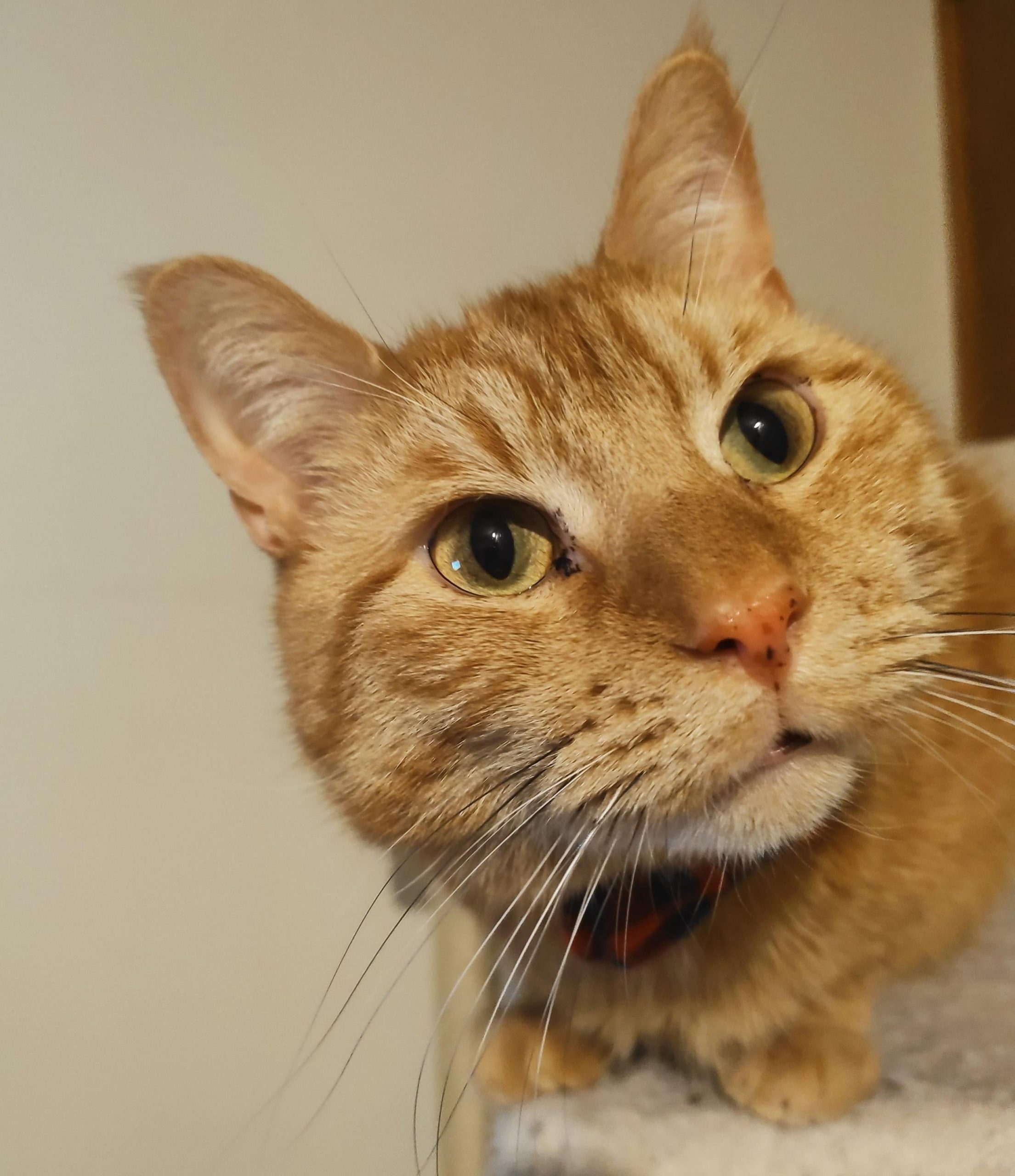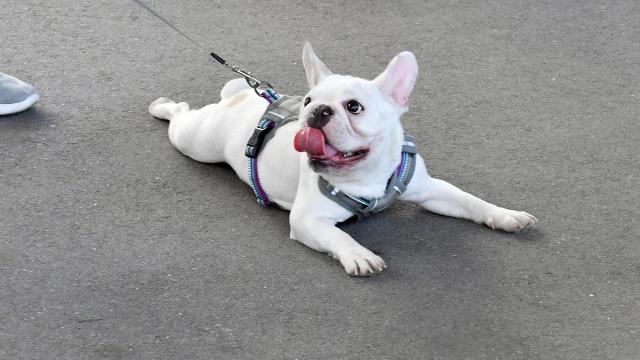Researchers are looking for good boys and girls to volunteer their time and paws for the sake of science. This week, scientists at Hunter College’s Thinking Dog Centre sent out an open call for everyday cats and dogs, as well as their owners, to participate in a citizen science project. The study is intended to help us better understand how these pets see the world around them, through the use of optical illusions.
In early May, animal cognition researcher Gabriela Smith and her team published findings from a study titled: “If I Fits I Sits: A Citizen Science Investigation into Illusory Contour Susceptibility in Domestic Cats.”
Their study, conducted last summer, asked cat owners to print out sheets of paper at home and arrange them into certain shapes on the floor. These shapes would include a square as well as the Kanizsa square illusion — a pattern of incomplete circles only made to look like a square. The cats then sauntered into the room and did as they pleased. Because cats are known to like sitting inside squares, Smith wanted to see if they would get fooled by the illusion and sit inside it as often as they sat inside the real square.
Unsurprisingly, many of the cats didn’t fully complete the experiment, which ran for six days. But among the cats that did, they couldn’t seem to tell the difference between the fake and real square. The cats preferred both kinds of squares over a control shape but chose one about as often as the other. At the time, Smith told Gizmodo, “The major takeaways are that cats are susceptible to the Kanizsa illusion in a human-like way, and are most likely attracted to 2D shapes for their contours (sides), rather than solely novelty on the floor.”
Now, Smith and her colleagues are planning to conduct a sequel study of sorts, one that will test the cognition of cats and dogs alike.
“[The study] is called Seeing Things, and it explores both dogs’ and cats’ susceptibility to motion illusions through citizen/community science,” Smith said. “We’re interested to know if they treat motion illusion stimuli differently than the control stimuli. And if so, does this mean they see motion illusions like humans do — static images interpreted as containing motion?”

Like before, the group is recruiting willing pet owners to participate at home. But this time, following a screening questionnaire, volunteers will be able to complete their part in a single day. The actual experiment, which will again involve laying out paper on the floor, should only take ten minutes to complete, while the entire study (recording and reporting the results) should be twenty minutes long. Afterward, owners will have the chance to print out a certificate of completion, which some volunteers have already earned.
Smith points out that projects like this are important for lots of reasons. Practically, they can give scientists like her a large sample of data (pets, in this case) to sift through, which should bolster the strength of their conclusions. Dogs and especially cats will be more comfortable at home than at a lab, allowing them to behave as naturally as possible. Ordinary people, especially kids, will also get to take part in something both scientific and fun. And for those of us ever curious about what makes our pets tick, this sort of research should help provide a “glimpse into the minds of companion animals and how they see and interpret the world,” Smith said.
People interested in the project can learn more from its dedicated website here, and if you’re already on board, you can sign-up here. Those just looking to see some cute dogs and cats doing science can check out the study’s social media tag, #seeingthings2021.
